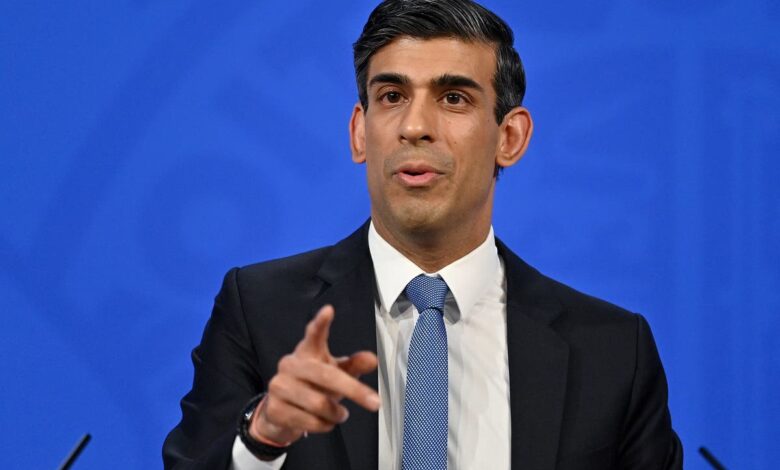Treasury’s flagship policy in doubt, with just five full time staff

The flagship Plan for Growth has been labelled a Whitehall power grab, and was “never a serious policy programme” according to the Institute for Public Policy Research (IPPR) and Whitehall insiders.
The analysis from the left of centre think tank comes as The Independent has learned that the Treasury has just five full-time staff focused on its much-touted policy.
The government scrapped its Industrial Strategy in March 2021 and disbanded the team of around 50 BEIS officials who ran it. In its place, it created a new Plan for Growth to be lead by the chancellor, Rishi Sunak.
However, the Treasury has not hired any additional staff to take on the flagship policy, and instead is relying on around five full-time officials to drive forward the plan to boost the UK economy, The Independent understands. While other government departments may also be supporting this policy drive, concern is growing among officials that the effort has been de-prioritised.
These worries are underlined by a new analysis from centre-left economic think-tank the Institute for Public Policy Research (IPPR), shared with The Independent.
“These figures show that the Plan for Growth is really a plan to fail,” said George Dibb, head of the IPPR centre for economic justice. “The government scrapped the entire industrial strategy team and yet hasn’t recruited a single member of staff for its replacement. It’s just not serious about the Plan for Growth.
“Truthfully, the Treasury has never been anything but openly hostile to active industrial policy and it shows. The Plan for Growth was never a serious policy programme, it was an opportunity to seize power back from the business department.”
The findings come amid a dire outlook for household budgets in the months ahead. The latest figures from the Office for National Statistics show that real pay growth was negative year-on-year in the three months to January. Separate projections from the Bank of England released last month showed the biggest squeeze on living standards – with price growth outstripping wages – in more than 30 years.
However, the squeeze on households may prove even greater expected, following Russia’s violent invasion of Ukraine. Termed the “Breadbasket of Europe” Ukraine is one of the world’s largest grain exporters. Crop experts have expressed concern about the country’s ability to maintain, harvest and sow foodstuffs in the months ahead, putting 12 per cent of the world’s annual wheat, and 17 per cent of maize production in doubt.
Sanctions placed on commodities powerhouse, Russia, have also driven up global prices for oil, natural gas, and coal. The breadth of the sanctions against the country have discouraged energy companies from doing business with the Putin regime, but Europe remains heavily dependent on Russian fossil fuels. This has driven up the costs of alternative sources of oil and gas.
Price growth amid weak output means the UK risks falling into a period of stagnation, economists warn. Workers have been discouraged from requesting pay rises by Bank of England chief Andrew Bailey, in a bid to stave off the risk of a wage-price-spiral, a flashback to the economic traumas of the 1970s.
“This lack of serious growth policy isn’t just a Whitehall issue. Our current long-term growth trajectory is dire and it’ll mean fewer jobs, lower pay rises, and less tax revenue to invest in public services,” Mr Dibb said. “Now’s the time for the Chancellor to stop fiddling around the edges and put in place a serious industrial strategy backed up with investment to boost productivity, wages and growth.”
Still, even amid sluggish GDP growth, the Bank of England is expected to raise its key interest rate from 0.5 per cent to 0.75 per cent this month. The step is likely to pressure on borrowers. However, with the surge in energy prices over winter and a more than 50 per cent increase in the energy price cap for domestic bills economists expect policymakers will be forced to act to try and curb price growth, which could top 8 per cent this April.
“We have provided unprecedented support throughout the pandemic, which has put our economy in a strong position to deal with current cost of living challenges,” a Treasury spokesperson told The Independent. “The chancellor has prioritised investment in skills, innovation and infrastructure to boost long-term growth and productivity, and create a new culture of enterprise.”





